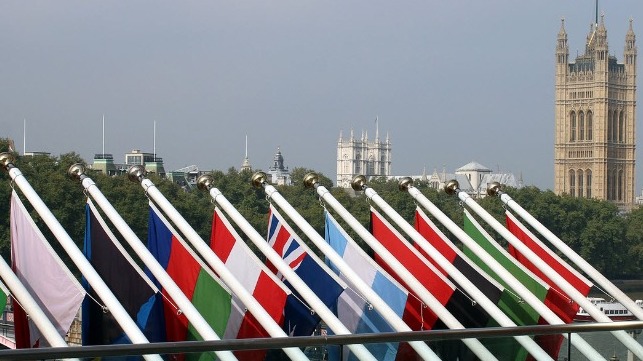MEPC’s Climate Package Should Favor Developing Economies

If the massive efforts by developed countries to steer the shipping sector towards a zero-carbon future are not matched by developing economies, the anticipated reduction in greenhouse gas emissions will be hard to attain. The emerging and developing economies (EMDEs) in the coming years will represent the bulk of growth in global emissions as they industrialize and urbanize. These nations are projected to increase their carbon emissions by five gigatonnes in the next two decades, while those of advanced economies will fall by two gigatonnes. They also account for two-thirds of the global population but just one-fifth of the investment in clean energy.
In a recent report by International Energy Agency (IEA), Dr. Fatih Birol emphasizes that “if energy transitions and clean energy development do not quickly pick up speed in emerging and developing economies, the world will face a major fault line in efforts to address climate change.”
Already, the ravaging pandemic in its wake has cratered the national balance sheets of these economies depriving them the necessary capital to enact green policies. In 2020, clean energy investment by these economies declined by eight percent to less than $150 billion. Only a slight rebound is expected in 2021, but more than $1 trillion in investment in clean energy is needed to realize global net-zero emissions by 2050.
However, two scenarios are complicating the debate for clean energy in developing economies. First, with many of them representing the world’s largest oil and gas producers, how do they re-invent economies which are dependent on hydrocarbon revenues? Secondly, developing economies have to catch up in providing for most of the 800 million people without access to electricity and 2.6 billion people lacking access to clean cooking energy. In essence, it is hard to convince people who have never had electricity to transition to some other form of clean energy. Nevertheless, this presents a pristine opportunity for policy leaders to bring all these people on-grid through clean energy.
In recognition of this, sectors mulling strategies to limit their GHG emissions have to ensure they are inclusive of the developing world. A perfect example is IMO’s Marine Environment Protection Committee (MEPC), which in the coming days will deliberate on the shipping industry’s blueprint on climate mitigation.
Different stakeholders have put forward wide-ranging proposals and there is an expectation for the committee to adopt an outcome that fosters global consensus across the industry. The EU is advocating for high emission-reduction targets and even proposing to add the shipping sector to its carbon trading market. Among the backers of tougher emission guidelines is Maersk, which has proposed a carbon levy of $150 per ton of CO2 emitted by a ship as a nudge to cleaner fuels. On the other hand, a number of developing nations - including Brazil, Argentina, Chile and several in Africa - are recommending less stringent targets.
The proposal by the developing economies is quite telling of their perception of the burden of the transition to cleaner energy. In large part, this is due to the capital demands of switching to renewables, made worse by low public financing of energy projects by their governments.
Over 80 percent of shipping’s emission reduction will have to come from building new infrastructure- such as cold ironing facilities and cleaner fuel sources. This will place a huge bill on public-operated ports in developing economies.
In line with this, MEPC has to consider an approach that dramatically increases the role of the private sector to mobilize the required decarbonization capital - especially an investment structure that favors equity over debt. Carbon tax markets can readily support these funds to facilitate a transition to cleaner fuels.
Unfortunately, carbon pricing - though an important component of climate policy - is a highly polarizing matter. Some parties are already concerned that the carbon-intensity reduction measures proposed for adoption in the upcoming MEPC meeting are unambitious. This may result to a “compromise on a narrow policy with low price that fails to cut emissions quickly or deeply enough,” according to an article by Leah Stokes and Matto Mildenberger in the Boston Review on the troubles of carbon tax markets in Europe and the United States. A good example is the plan by International Chamber of Shipping to charge an extra $2 per ton of marine fuel to finance a $5 billion R&D fund. Environmental campaigners and NGOs see this proposal as too little, instead recommending at least $100 per ton, as proposed earlier by a group of Pacific island nations.
Thus, the key duty of MEPC in this month’s meeting is to ensure that certainty prevails in the industry’s blueprint package on carbon emissions reduction. A failure on this will leave the industry polarized and with multiple, disparate approaches to climate mitigation.
The opinions expressed herein are the author's and not necessarily those of The Maritime Executive.
